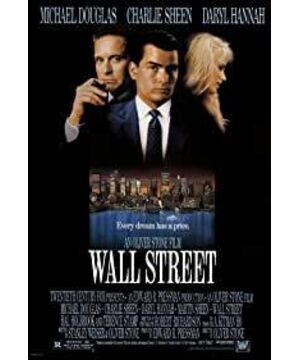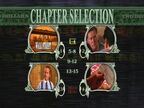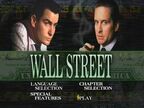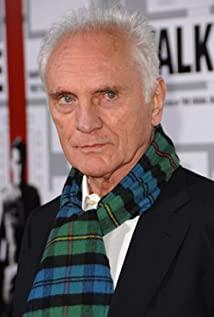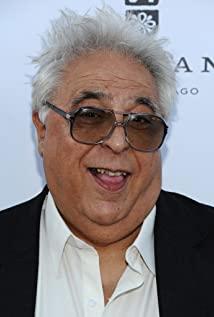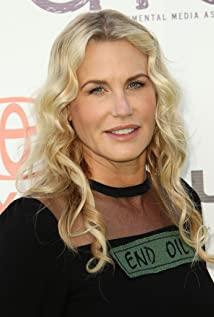One star short of it is that the male protagonist finally overcomes greedy desire, although success is already within reach. The deliberate plot is here where he starts to find the right family and successfully persuade them, but the family does not accept his favor. (After all, the first half of the film feels that the characters are all "purely profit-seeking" or "purely moral", with no middle ground, right?) I believe that modern Wall Street has been in the financial turmoil and several black swan events and Corresponding market supervision is more or less learned, you may not make money just by greedy but the goodwill of the losers (see game spot and digital currency).
I think Douglas is undoubtedly a smart man, and foreigners who are familiar with Sun Tzu's Art of War can never be underestimated; but I don't think he is smart enough.
What's the use of being a pure instrument of money? What he did back then was nothing more than the AI in the "Write AI to Buy Stocks" in Wall Street and even college competitions, which can be replaced very simply and simply.
People who only have friends for benefits/admirers for benefits, according to my simple observation, are not necessarily stupid, and often even have some cleverness, but they must have learned poorly in the overall situation of philosophy. Why? Because they see so little. A shopping mall is not a place where you can make a fortune in two years, and a real lion will not exist for only a moment.
In fact, it is very interesting that if you are a real profit-seeking person, you are often very moral; because morality is a merge-defined behavior that naturally arises in profit-seeking behavior.
Where Douglas is stupid (or I don't think it's written well in the show):
1. Goodwill Goodwill. Let’s not mention the previous one. By deceiving the labor union to buy Blue Star’s assets for sale, have you ever thought that the situation of your acquisition of the next company will still be so smooth? When the scandal comes out, you are not only suspected of breaking the law, but the stock price will also fall. (I don't know how they signed the transfer document, the screenwriter did a good job, but there are still flaws in logic)
2. Being tough in work and being liked in life are actually not in conflict. The film aims to create a "in order to stay on Wall Street, you must be ruthless and have no conscience. Because finance does not create value by itself, it is originally a game of sucking the blood of the value created by others", which is kindda true. But In fact, the business of Wall Street has also developed naturally. It is an investment bank that is motivated by the need to optimize asset allocation. It cannot be simply summed up as 100% vampires. Banking systems also developed naturally, but everyone was reluctant to accept this fact, believing that they "must be immoral and blood-sucking". It is just an important and necessary link in today's economy and society based on "scarcity", and there must be more legal transactions than illegal transactions. There must not be anyone on Wall Street who is the most hideous. Whoever rises faster and becomes more successful, many predators are like philanthropists in their lives, such as Buffett, Bill Gates, etc., because it is very simple, they need people to like them, This is very important to them personally and for their business. The leader of a company that attracts people to hate can't be a predator.
3. Insider trading is illegal, but if a "friend" in one of their chains reports/smears a witness or is found out, his business will be lost, he will have to pay huge compensation, and may even be imprisoned. (Isn't this the end of the movie?)
4. Playing with women outside with his wife on his back, once the wife gets the evidence, he must be at fault for the divorce and needs to pay compensation. If there is a child, the child will also be awarded to the mother, and the alimony will be full. And scandals are bound to affect stock prices. (In his company where he seems to be the main brand, this effect can be seen in tesla and Musk, not to mention the financial company has no technical moat)
5. His values are very fragile. Finance plays value in the long run and price in the short term. His definition of success is clearly price-driven. He doesn't care about the value behind the price - a warm family, a persevering artistic spirit, love, the gentlemanly demeanor behind an expensive oil-top trench coat, and so on. It's hard for me to imagine that a person in such a high position has such a single value. Not to mention, how can he make cakes for his employees? Didn't he realize that he could not convince others just by spending a lot of money on his own interests? (Isn't Blue Star successful in confiscation).
Furthermore, what if you earn less? What if you lose yourself? Stock gods such as Buffett have lost money several times along the way; what if his business empire did not have the fire of others? What if he is despised by people who earn more than him? What if he was too sick to do the job?
It is hard for me to imagine how he faced difficulties with such a single value, educated his children, and looked at the people around him;
If he really sees people as just a series of numbers, I would think that he must have had poor living conditions when he was a child and had not received enough humanistic education.
I don't know how high the definition threshold of his success is; how painful it will be to encounter failures beyond his control (refer to the failure of Blue Star's acquisition, "only earn 10 million", and then he will be angry with the male protagonist).
Human greed can of course be unlimited (in fact, I also doubt this, you know, the category of classic economics has long been discussed cons; many people today are instead pursuing various senses of separation), but A person's immediate ability and time are limited. Does he have to condescend himself/others to ask them to be the trend of the times, which is impossible for each individual, in order to satisfy his own values? His way of doing things seems to me a bit like the teacher in "Blacking Drummer", yes, but not necessary.
6. He may be the screenwriter's personification of "Wall Street Capital". Greed, mercenary, and profit maximization are the definitions of a free economy in classical economics. But if the screenwriter learns more about modern economics and behavior, he may not write like this. He could become a constrained, negotiated, and always efficient baby boy.
It's fun to think about. On how capital "talks about martial arts".
View more about Wall Street reviews


